Latest News
17 December 2020
Delft researchers chart the potential risks of 'free-floating DNA'

We don’t realize it, but loose strands of DNA end up in nature via our wastewater. As of yet, it is unclear how much this 'free-floating DNA' impacts environmental and public health. Researchers at Delft University of Technology (TU Delft) have now found a way to determine just how much potentially harmful DNA ends up in our wastewater. They have developed a method that can isolate such ‘free floating DNA’ from wastewater, which gives them the means to determine the extent of the problem. The results of their work will officially be printed in Water Research in February 2021, but have already been pre-published online.
09 December 2020
Existing neighbourhoods energy-neutral thanks to innovative solar heat network
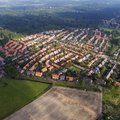
A solar heat network has proven to be technically and financially feasible for making existing neighbourhoods more sustainable and natural gas-free, as demonstrated by a consortium led by TU Delft
09 December 2020
ERC Consolidator grants for TU Delft researchers
The ERC has awarded a Consolidator Grant to Stan Brouns, Kristof Cools and Simon Gröblacher from TU Delft. With this support, they will be able to consolidate their teams and have farreaching impact. It was the first ERC Consolidator Grant application process that was conducted completely online.
08 December 2020
2020 edX Prize for TU Delft online course on energy-neutral buildings
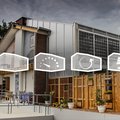
Andy van den Dobbelsteen, Eric van den Ham and Tess Blom (Faculty of Architecture and the Built Environment) are the winners of the 2020 edX Prize for Exceptional Contributions in Online Teaching and Learning, with their online course “Zero-Energy Design: an approach to make your building sustainable”. Their MOOC is designed to help participants figure out which energy measures can be applied to make their buildings (more) sustainable and zero-energy consuming.
07 December 2020
SURF Education Award for Willem van Valkenburg
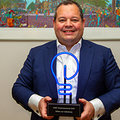
Willem van Valkenburg, Executive Director of the TU Delft Extension School received the SURF Education Award 2020 for his outstanding contribution to educational innovation nationally and internationally.
04 December 2020
Professor Ronald Hanson appointed Distinguished Professor in Quantum Computing and Quantum Internet
Professor Ronald Hanson of the Faculty of Applied Sciences (AS) and the QuTech Institute has been appointed Distinguished Professor in Quantum Computing and Quantum Internet.
03 December 2020
TU Delft appoints ‘Pro Vice-Rector’ of AI, Data and Digitalisation

The Executive Board of TU Delft has appointed Professor Geert-Jan Houben as Pro Vice-Rector Magnificus of Artificial Intelligence, Data and Digitalisation (PVR AI) with effect from 1 December 2020. In this role Houben will be leading the TU Delft AI Initiative and promoting regional, national and international co-operation on this theme.
02 December 2020
TU Delft software for determining contagion risk for specific locations
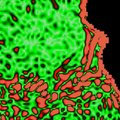
TU Delft professor of aerodynamics Fulvio Scarano, together with fluid mechanics expert Lorenzo Botto and simulation expert Wouter van den Bos, has developed software to calculate the risk of Covid-19 contagion at specific locations. The model virtually places a sick person in the space in question and simulates how quickly virus particles spread. The TU Delft researchers hope that designers will use the software to make predictions for determining whether an aircraft, classroom or restaurant, for example, is safe. The plug-in will probably become available in February.
01 December 2020
Delft researchers develop blood oxygenation sensor for premature babies

Doctors have to keep a close eye on babies that are born prematurely, and brain oxygenation is perhaps the most important thing to monitor. Up to 50 percent of premature babies suffer brain damage, leading to neurological problems. Researchers at Delft University of Technology have now developed a wireless sensor that monitors the health of the baby's brain in a simple, inexpensive and comfortable way for the child.
01 December 2020
Researchers peer deep inside tissue
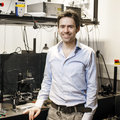
One of the challenges in optical imaging is imaging the inside of tissue in high resolution. Traditional methods allow us to look to a depth of approximately one millimetre. Researchers at Delft University of Technology have now developed a new method that can penetrate up to four times as deep: up to around four millimetres. The healthcare sector in particular may benefit from the new technique in the future.
